Insulation Tips
What is Sound Insulation, and Does It Work?
Sound insulation – AKA acoustic insulation – is a specialised type of insulation that is designed to reduce the transfer of noise inside and outside your home.
Sound insulation can be used to prevent transfer of –
- Airborne sounds such as voices, airplanes or traffic
- Impact noises such as footsteps or vibrating appliances
Sound insulation batts will also provide a level of thermal performance for better temperature regulation inside the home. Check the R-Value of the product to determine how well it resists the transfer of heat.
In this article, we’ll cover everything you need to know about what sound insulation is. Including – how acoustic insulation works, why it’s different from thermal insulation and whether you need it for your home.
How Does Sound Insulation Work?
Sound waves travel through the air. As they hit a surface they are either reflected or absorbed. Hard, smooth surfaces tend to reflect sound best, creating a noisy environment. Materials that are good at absorbing and blocking sound waves can help you create a more quiet and peaceful indoor environment.
Sound insulation has been specially designed to absorb sound waves and reduce the transfer of noise. It is thicker and more dense than regular thermal insulation, making it an excellent choice for soundproofing your home.
Video – Difference Between Thermal and Acoustic Insulation
Soundproofing vs Sound Absorption
Soundproofing refers to blocking sound so that it can’t travel from room to room. On the other hand, sound absorption refers to stopping sound from bouncing around a room.
Acoustic insulation batts can be used to soundproof an entire home or particular rooms within the home such as a theatre, the bathroom or bedrooms. When acoustic batts are installed in the internal walls of a home, they will help reduce noise transfer between rooms. Acoustic batts between floors of a double storey home can help keep the downstairs environment quiet and peaceful.
For commercial spaces, schools and offices, products such as Quietspace by Autex are designed to control sound levels. These interior acoustic products are installed on the walls or ceilings to help minimise reverberated noise and background echo.
Sound Insulation vs Thermal Insulation
If you are considering insulating your home, you might be wondering what’s the difference between thermal and acoustic insulation.
The primary purpose of thermal insulation is to reduce the transfer of heat to keep your home cooler in summer and warmer in winter. Thermal insulation can reduce your reliance on artificial heating and cooling and therefore save you money on your electricity bill.
While thermal insulation batts will have some acoustic benefits, sound insulation batts are specially designed to reduce the transfer of noise. Being thicker and more dense, acoustic insulation batts will help you create a peaceful and private home.
Sound insulation batts also provide the same thermal benefits as traditional thermal insulation. That means you get thermal regulation and sound regulation with the one product. The R-Value of any insulation product will tell you how effective it is at reducing heat transfer. The higher the R-Value, the more potential savings on electricity you can expect.
Best Sound Insulation for Australian Homes
Acoustic insulation batts are one of the most effective ways to soundproof your home. They are most commonly made from glasswool or polyester. Glasswool is made from recycled glass materials while polyester is made from recycled plastic materials.
Polyester tends to be more expensive and has none of the itch factor associated with traditional glasswool products. Many modern glasswool products have improved in their design and are much more pleasant to handle these days.
Some of our most popular sound insulation products include:
- Knauf Earthwool Sound Shield – made from up to 80% recycled glass materials with a renewable bio-based binder. Comes with a 50 year product warranty.
- Fletcher Pink Soundbreak Batts – glasswool batts manufactured in Australia and backed by a homeowner lifetime warranty. Comes with a 70 year product warranty.
- Bradford Soundscreen Insulation – polyester insulation that is low allergenic and approved for use in homes of people with asthma and allergies.
- Bradford Polymax Acoustic Insulation – made from up to 80% recycled plastic materials and backed by a durability warranty of 70 years.
Do I Need Sound Insulation in My Home?
The importance of acoustic insulation should not be underestimated. If you are building a new home or renovating your existing home, we recommend you consider installing acoustic insulation.
The best time to install sound insulation batts is during the construction or renovation phase before any floors or wall linings are fixed into place. Consider installing sound insulation in the internal and external walls, ceilings and between floors if you have a multi-storey home.
A comfortable level of noise is part of any home, but excessive and unwanted noise creates a needlessly stressful environment. Acoustic insulation is one of the most effective ways to reduce unwanted noise and create a peaceful home.

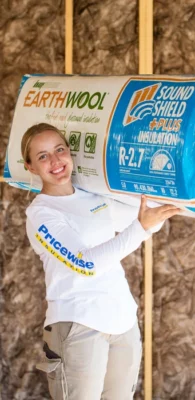
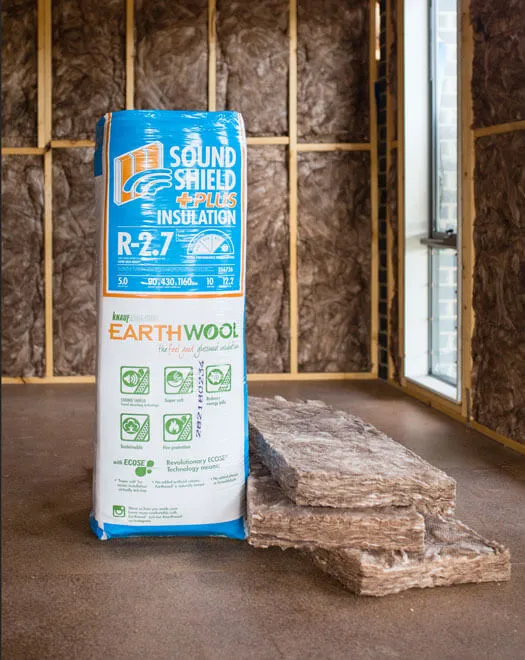
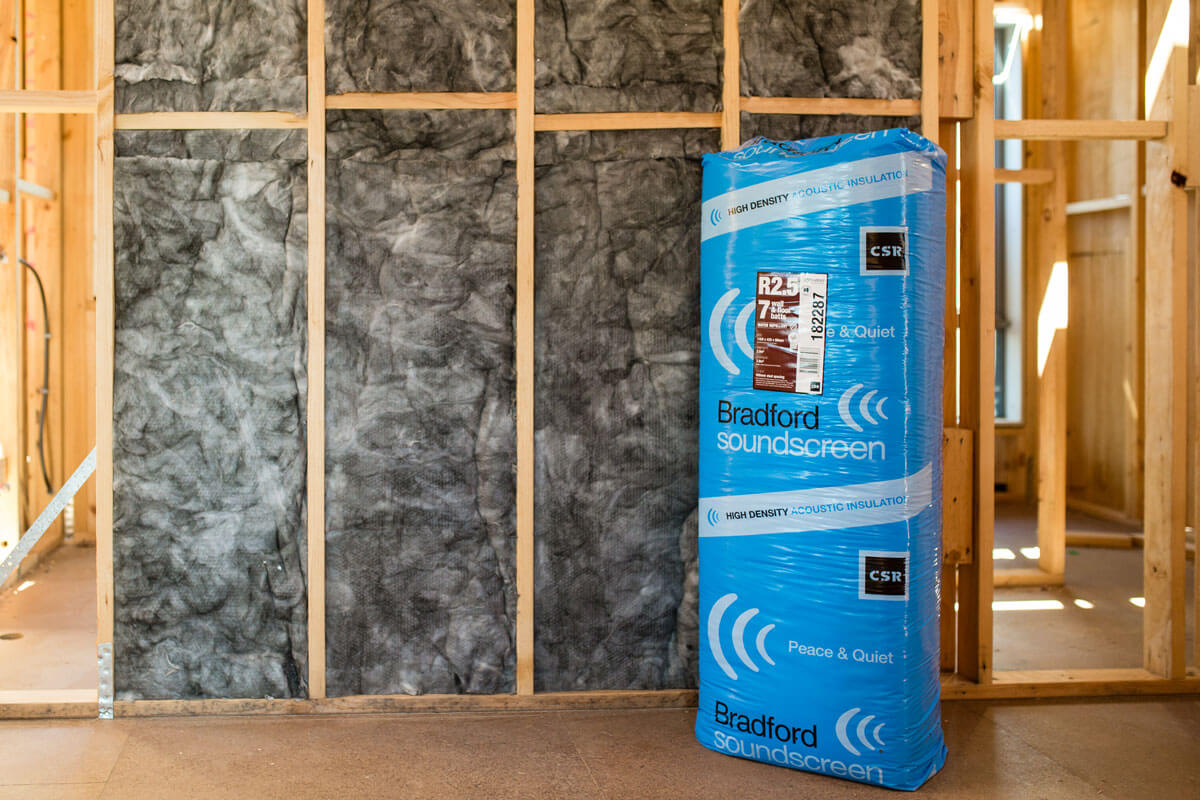
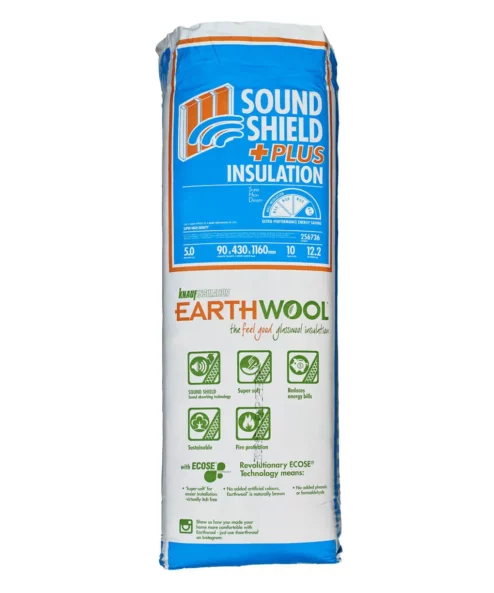
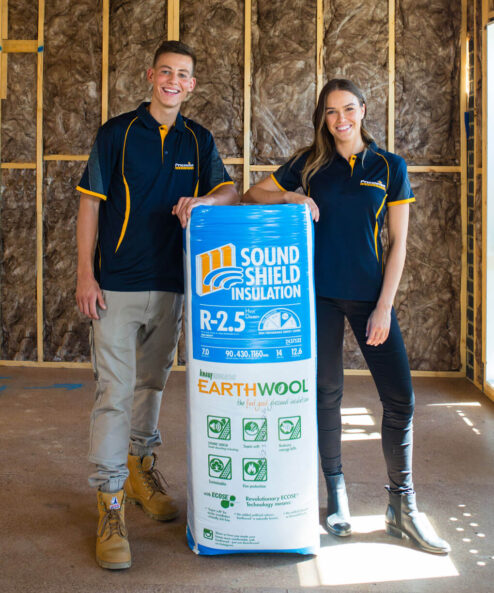
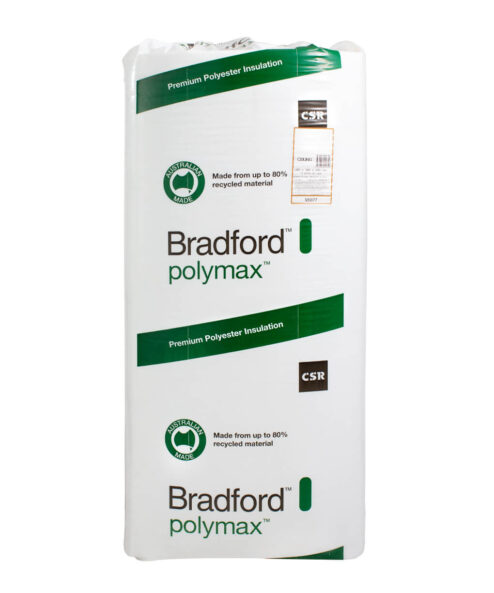
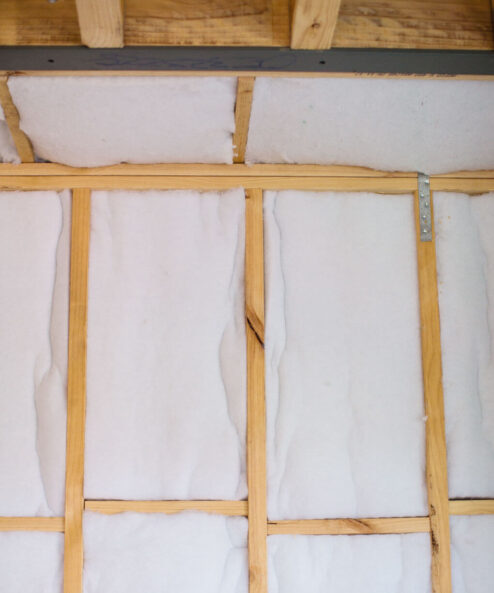
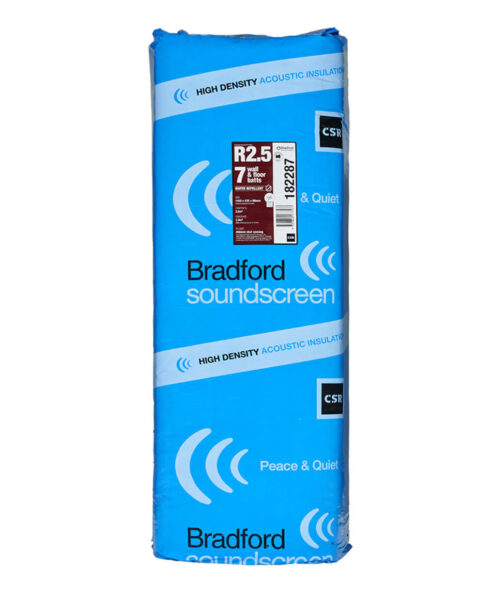
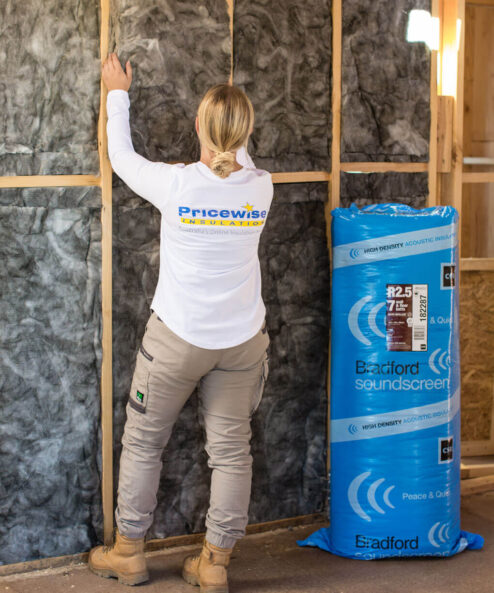
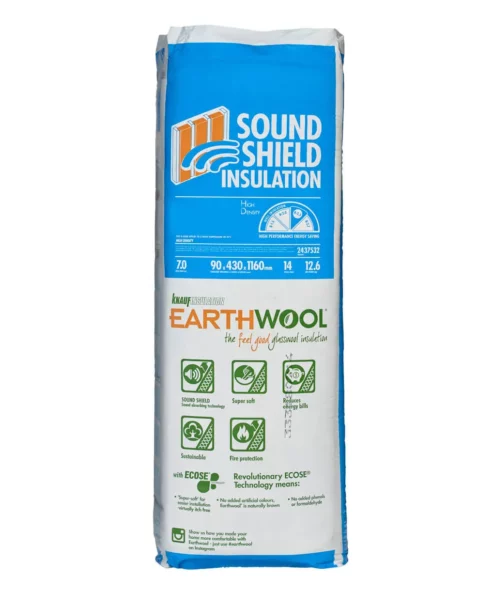
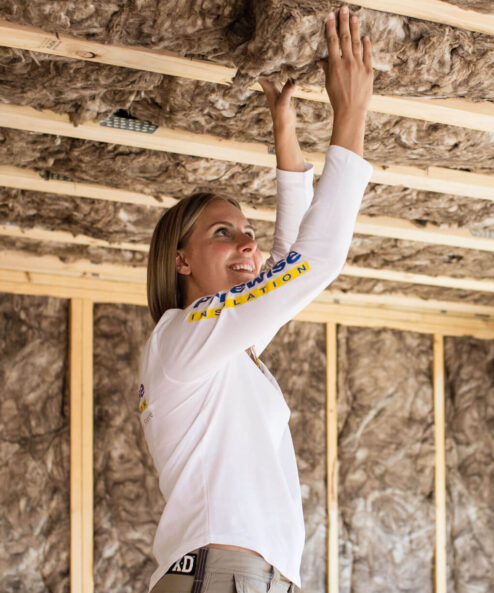
Hello Team
About 6 years ago I used Siam SCG Batts called Green from memory, they were great and well priced. As they were 100% recycled, the only one that was, swayed me to go for them. Do you sell these, as I know they are sold in Melbourne but i’m in Sydney. Would you recommend them still ??
Hi Warren,
Thanks for your question. We don’t stock that brand nor are we aware of anyone else who does anymore. If you are looking for a sustainable product with no harsh chemicals, then we would recommend installing Earthwool Insulation. Earthwool is made using up to 80% recycled glass and as well as being a sustainable product the insulation is soft to touch and easy to install. We’ve been been installing this product for more than 10 years and it’s a great product. Feel free to contact us on 1300 729 639 if you have any questions. Cheers!
Thanks so much. What “harsh chemicals” are you referring to ? I would have thought as more people are becoming energy saving and more enviro/recycling conscious, 100% recycled against 80% would resonate with consumers.
Hi Warren,
Earthwool has no added formaldehyde, which is why it’s a popular choice with consumers. Glasswool products such as Earthwool are made from sand, so they are sustainable even if they aren’t 100% recycled. Feel free to contact our team on 1300 729 639 if you have any further questions. Cheers!
Interesting post! Acoustic insulation is a sort of soundproofing that seeks to keep sound from entering or departing an enclosed room by forming a barrier between the interior and external areas. One example is the placing of panels on interior walls. The panels in this application contain foam or other materials that can assist in absorbing echoes, reverberations, or different sorts of sound transmissions.
Agreed! Thanks for your comment, Ashley.